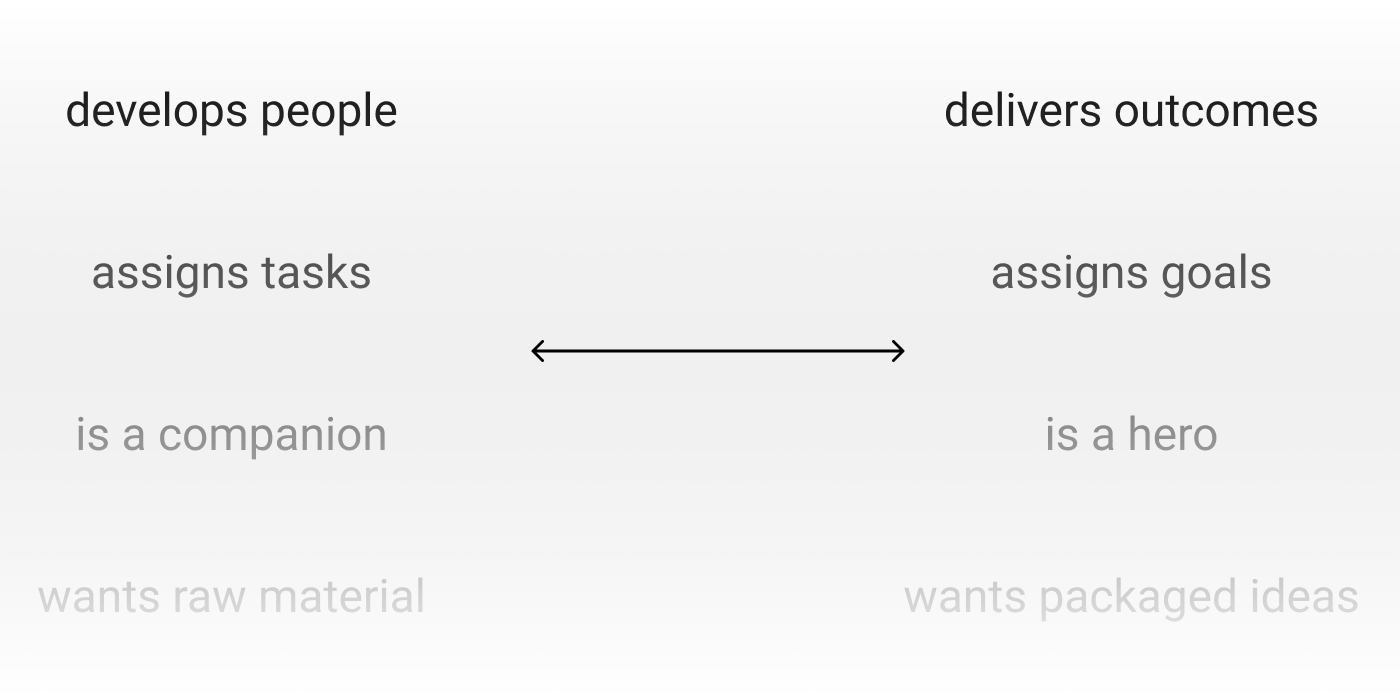
Sponsored By: Morning Brew
Join over 4 million people by reading Morning Brew - the free daily newsletter covering all things business from Wall Street to Silicon Valley.
Let's face it: traditional business news is dry, dense, & boring. But Morning Brew is written in a witty yet informative tone that makes reading the news actually enjoyable.
Best part? It's 100% free and only takes 5 minutes to read, so that you can get all of the most relevant updates and move on with your day.
Sometimes it’s easy to forget the very simple fact that your manager wants to help you do great work that fulfills you. Let that sink in. Your manager wants you to be productive and happy and getting even better over time as often as possible. She wants your work to make a meaningful impact on the company’s goals. And she wants to be (and feel!) like she helps you get there.
We can all help our managers help us by more thoughtfully considering their goals, preferences, motivations, and style in the way we work with them.
I’ve come up with a set of questions to help you figure out what makes your manager tick, and some specific steps you can take to help them help you.
Here’s how it works:
- Every question is coupled with a spectrum on which you can plot your manager.
- If your manager indexes heavily towards one end of a spectrum, consider giving the suggested tactics a try.
- If your manager falls in the middle of the spectrum, move on to the next one (you’ll probably find more impactful tactics elsewhere).
Depending on your relationship and level of comfort with your manager, you could also do this exercise together to start a conversation and make some agreements about how to best work together.
Why does your manager manage?
Develop people: Managers motivated by developing people want you to do the best work of your career. They regularly check in on how you are doing and care a great deal about team and company culture, and your role in it. They’re your personal cheerleader.
Deliver outcomes: Managers motivated by delivering outcomes want you to drive excellent work to completion. They regularly check in on the status of your projects and care a great deal about the quality, progress, and outcomes of the work, and your role in it. They’re your personal work catalyst.
If your manager indexes high towards ‘develop people’:
- Clarify your career aspirations and/or ask for help creating a plan (some teams call these Talent Plans).
- Show up for the team (work at your desk, greet your team in Slack, engage during meetings, attend outside work events or plan them).
- Recognize other team members for their work.
- Invest in the personal relationship as much as you can.
If your manager indexes high towards ‘deliver outcomes’:
- Above all else, get the work done.
- Ensure your outcomes are measurable and measure progress/impact with it.
- Provide regular and consistent progress updates.
- Describe blockers with clear context and a plan for movement (and ask for help when you need it).
- Share ideas for how you could make those outcomes even better, faster, or more impactful.
Note: positivity and optimism are helpful across the board.
What brings your manager pride?
Craft: Managers who value craft want you and your teammates to do spectacular, industry-shaping work. Craft-focused managers seek a combination of pixel-perfection and innovation. They’ll obsess over the details. These types of managers are often industry/domain experts themselves who may have moved into a management role to multiply their impact by helping more people do the stuff they’re great at.
Machinery: Managers who value machinery believe that how things get done is just as important as what gets done. Machinery-focused managers seek to build well-oiled machines and processes that are humming. Often, managers who take pride in machinery are professional managers more than they are practitioners. I’ve seen this align closely with management experience and larger team size.
If your manager indexes high towards ‘craft’:
- Share principles for what constitutes “great work” in the field you’re working in and your work specifically.
- Meticulously describe the context for each choice, especially the small ones.
- Keep an eye on what competitors are up to.
- Share inspiration to make sure you’re on the same page about what you’re striving for.
- Bring “user” feedback from organizational stakeholders and knowledgeable people outside the company.
If your manager indexes high towards ‘machinery’:
The Only Subscription
You Need to
Stay at the
Edge of AI
The essential toolkit for those shaping the future
"This might be the best value you
can get from an AI subscription."
- Jay S.
Join 100,000+ leaders, builders, and innovators

Email address
Already have an account? Sign in
What is included in a subscription?
Daily insights from AI pioneers + early access to powerful AI tools












Comments
Don't have an account? Sign up!